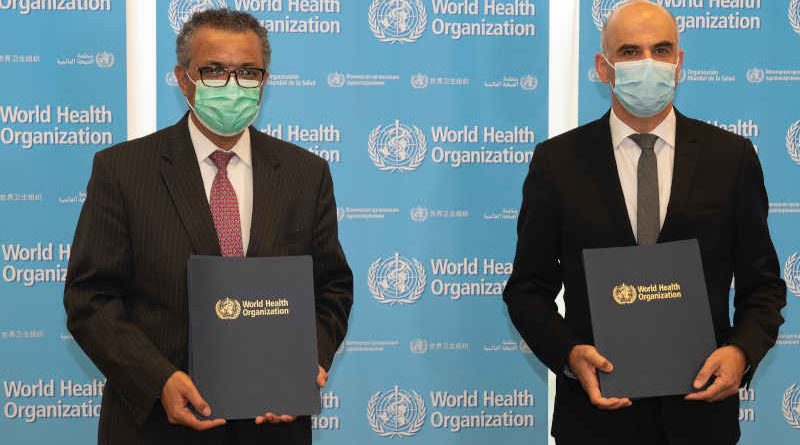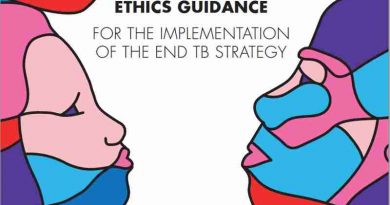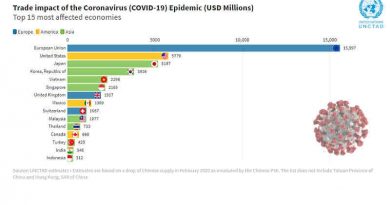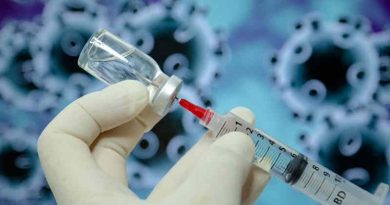WHO and Switzerland Launch Global BioHub for Pathogen Study
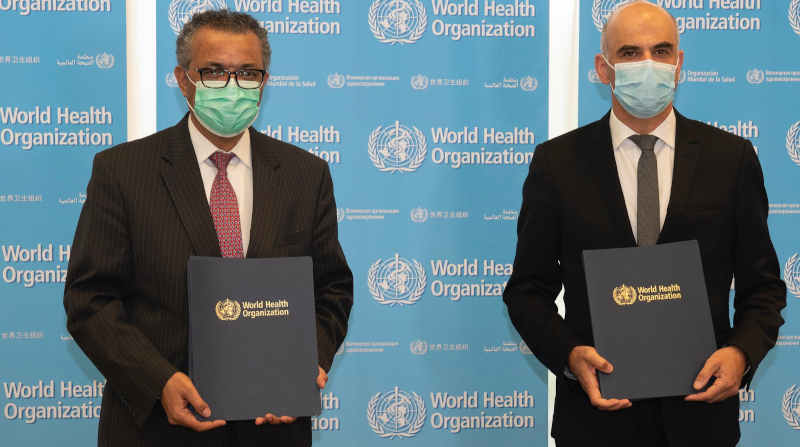
The Covid-19 pandemic and other outbreaks and epidemics have underscored the importance of rapidly sharing pathogens.
The World Health Organization (WHO) and the Swiss Confederation signed a Memorandum of Understanding on May 24 to launch the first WHO BioHub Facility as part of the WHO BioHub System, which was announced in November 2020. This facility will enhance the rapid sharing of viruses and other pathogens between laboratories and partners globally.
Based in Spiez, Switzerland, the facility will serve as a centre for the safe receipt, sequencing, storage and preparation of biological materials for distribution to other laboratories, in order to inform risk assessments, and sustain global preparedness against these pathogens.
“Close international collaboration to ensure the timely sharing of epidemiological and clinical data as well as biological materials is of utmost importance. Switzerland supports the WHO BioHub initiative in its initial phase by providing the necessary infrastructure of a Swiss biosafety laboratory in Spiez. With this, we hope to contribute to the establishment of an international exchange system for SARS-CoV-2 and other emerging pathogens,” said Swiss Federal Councillor Alain Berset.
Currently, most pathogen sharing is done bilaterally between countries and on an ad hoc basis, which can be slow, and leave some countries without access to the benefits and tools. The BioHub will enable Member States to share biological materials with and via the BioHub under pre-agreed conditions, including biosafety, biosecurity, and other applicable regulations. This will ensure timeliness and predictability in response activities.
WHO and the Swiss Confederation today signed a Memorandum of Understanding to launch the first WHO #BioHub Facility. This facility will enhance the rapid sharing of viruses and other pathogens between laboratories and partners globally 👉 https://t.co/AmUaBeC4q6 pic.twitter.com/6rqpHbwQI1
— World Health Organization (WHO) (@WHO) May 24, 2021
“The Covid-19 pandemic and other outbreaks and epidemics have underscored the importance of rapidly sharing pathogens to help the global scientific community assess the risk and develop countermeasures such as diagnostics, therapeutics and vaccines,” said Dr Tedros Adhanom Ghebreyesus, WHO Director-General. “The BioHub System is an important step towards facilitating this flow of information. We thank the Swiss Government for its support in establishing the first BioHub Facility.”
In parallel, WHO will broaden its BioHub System for the use of biological materials by qualified entities – such as manufacturers – for the development of medical by-products for fair allocation to countries. WHO is currently running a pilot phase, using SARS-COV-2 and its variants, to test the feasibility and operational arrangements for sharing such materials with the facilities of the BioHub System.
Following results from the pilot project, the BioHub will expand from SARS-COV-2 and its variants, to other pathogens, and connect partners with other repositories and laboratory networks in 2022.

